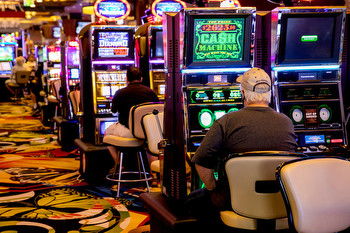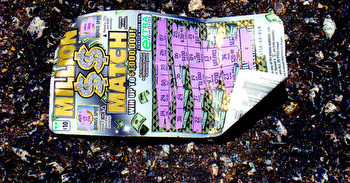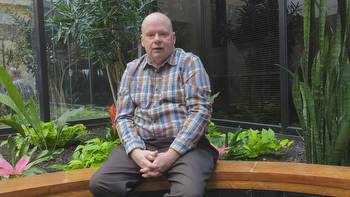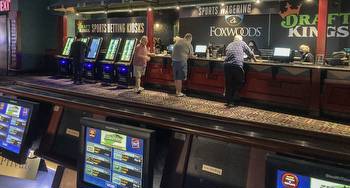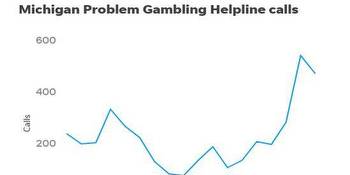Online gambling is on the rise in Colorado, and so are the problems that go with it
Money spent on gambling is way up since the legalization of online sports betting. With that increase comes an increase in gambling addiction. We spoke with Peggy Brown, president of the Problem Gambling Coalition of Colorado.
Sam Fuqua: As we head into a big sporting event like the Super Bowl, do you see an increase in calls to your hotline? An increase in people asking for help? Is there a link there?
Peggy Brown: Typically it won't be going into, it will be after (where) we can see a surge. We will see an increase in the number of calls.
Fuqua: Can you tell us about the demographics of the people who you're helping?
Brown: Actually it's all over the board, from 18 to, I think our oldest guest has been like 72. You know, with varying gambling issues from slot machines to sports betting, we're currently seeing a heavy concentration of males in the age range from 22 to 35.
Fuqua: The Supreme Court in 2018, there was a decision that cleared the way for online sports betting. Colorado and other states followed suit, I think Colorado legalized it in 2020. Then the University of Colorado entered into a marketing agreement with an online sports betting company. That contract has since been terminated, but CU got over a million dollars, and in exchange, that company was able to get some kind of marketing access to the CU student community. So this is all part of a big explosion in online sports gaming. And if I heard you correctly, that has been one reason why you're seeing an increase in young men seeking your services?
Brown: That's correct. Exactly. I think, three factors that, kind of caused the uptick in gambling activities. One was the epidemic, and another was the limited stakes that Colorado used to impose on gambling and wagering was eliminated. And COVID. So, people began to isolate and started a lot of gambling online, both legally and illegally.
Fuqua: In addition to the helpline and the in-person support, what other mechanisms are in place to help people who have a problem with gambling?
Brown: Well, one of the good things that was legislated in 2022 with the Responsible Gaming Act, was a state-run, operated, self-exclusion. That provides a gambler with an alternative to be blocked from all casinos and online sports betting. They can sign up for a number of different years. They can sign up for one, 35 years, whatever they determine that they need. So it's really good, and it puts a barrier in place for gamblers.
Fuqua: Yeah, they fill out some kind of form and then that goes into a database that presumably the online gaming companies and the casinos are checking and if their name comes up, they're excluded.
Brown: Correct. And that database is, I think, it's updated every 48 hours, so it's a pretty rapid process.
Fuqua: What would you say to someone listening to this who might be thinking their gambling has reached the problem level? Or perhaps someone listening who has someone they love in their family who they think might have a problem. What do you advise?
Brown: Call 1-800-GAMBLER. It's free, there's no charge for that. And, if they want to get to the Problem Gambling Center where they can actually talk to somebody and get some facts, and some answers and direction.
Fuqua: Peggy Brown is president of the Problem Gambling Coalition of Colorado. They're funded by state grant money that comes from gambling industry revenue. Their helpline is 1-800-GAMBLER.










